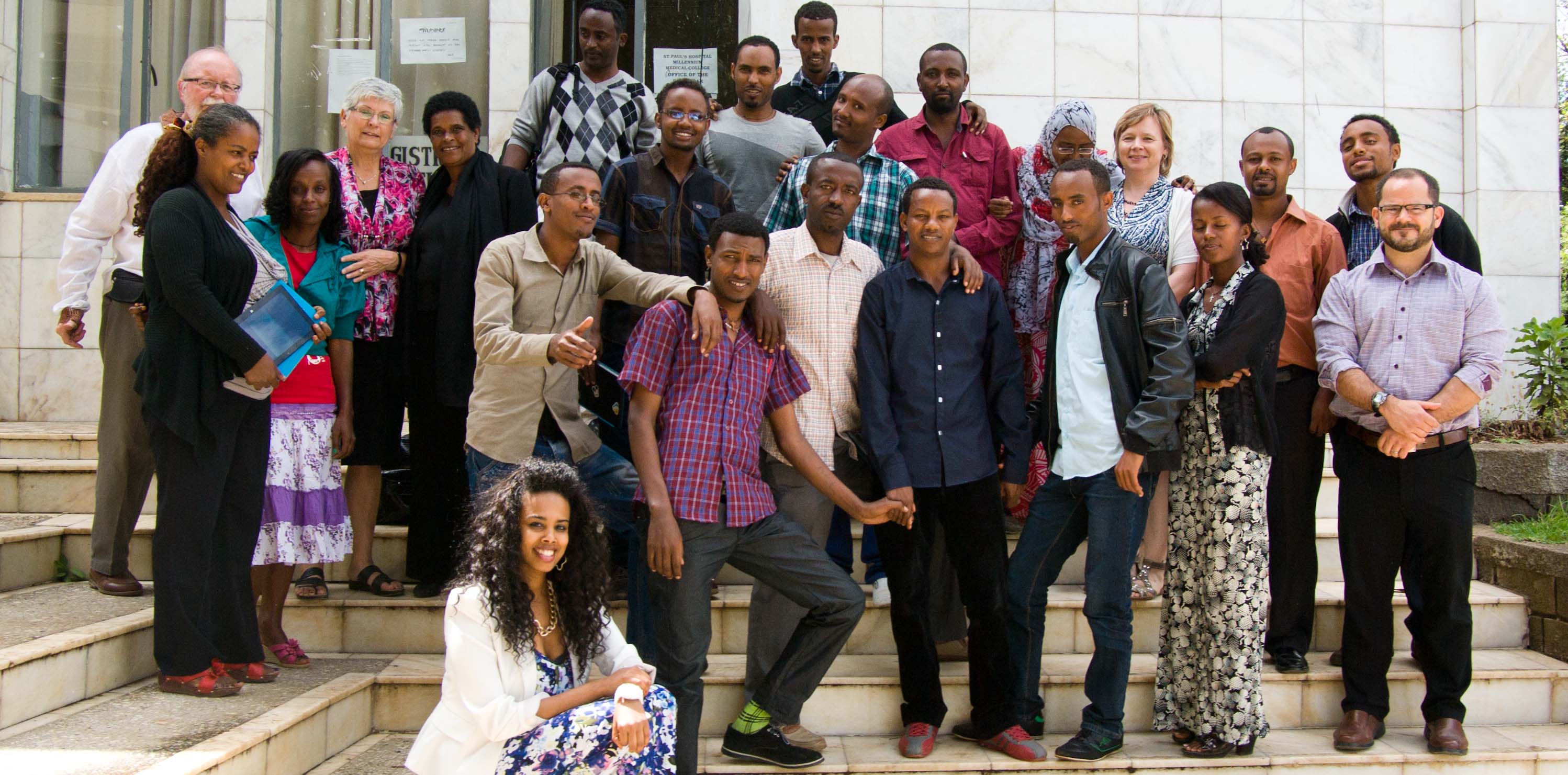Senior Midwife Tutor Training
The Senior Midwife Tutor Training Program
The SMTTP was a major component of our project. Based at St. Paul's Hospital Millennium Medical College (SPHMMC) in Addis Ababa, it was designed to boost the quality of midwifery training in a country rapidly expanding its numbers of birth attendants.
Over the four years of the program, up to 25 tutors were selected annually to participate. The course was primarily developed and implemented by Mount Royal University colleagues with input from partners at University of Alberta and St. Paul's; over the next four years, however, it was taken over and organized by SPHMMC with continuing support and assistance from Canada. The concept of the course places emphasis on quality, with the aim of translating this necessary ingredient out to midwifery education programs nationwide.
Learning objectives:
- Training in adult education, including skills for assessing learners and institutions, creating learning environments to meet these needs, and evaluating learner outcomes.
- Training in the teaching of professionalism.
- Reinforcing the core midwifery curriculum currently approved by Ethiopia's ministry of health, including routine obstetric care, acute obstetric emergencies, neonatal resuscitation (Helping Babies Breathe) and essential newborn care.
- Training in the management of educational programs and learners.
- Training in community assessment, research and evaluation of effective midwifery practice.
Course components:
1. Teaching and Learning Principles
This first section was a four-week residential course at St. Paul's Hospital Millennium Medical College. A classroom component, it focused mainly on training in adult learning principles, the assessment of learning and midwifery skills. Simulation learning opportunities were included. It was followed by two weeks of practice teaching in their home institutions.
2. Helping Babies Breathe (HBB)
This component was embedded in the residential course. The focus was on teaching life saving skills that promote a newborn's healthy transition from the womb to breathing air.
3. Clinical Refresher
Students spent four weeks at SPHMMC and two associated high-volume birth health centres to improve clinical skills.
4. Community Assessment
While back in their community, students undertook an assessment of maternal, neonatal and child health services (MNCH) in their areas, including a questionnaire survey of midwife teachers and practitioners.
5. Research Education
Students returned for three final weeks of classroom work, solidifying newly gained educational skills as well as reporting back on their community assessments. They were trained in micro-research skills. The door was left open to future funding for their research proposals.
Students had to complete all five components of the program. Once the students graduated, they returned to their home institutions and served as models and mentors to their fellow instructors. Our program continued to support them with a series of continuing-education activities and continued monitoring and information gathering.Project undertaken with the financial support of the Government of Canada 

